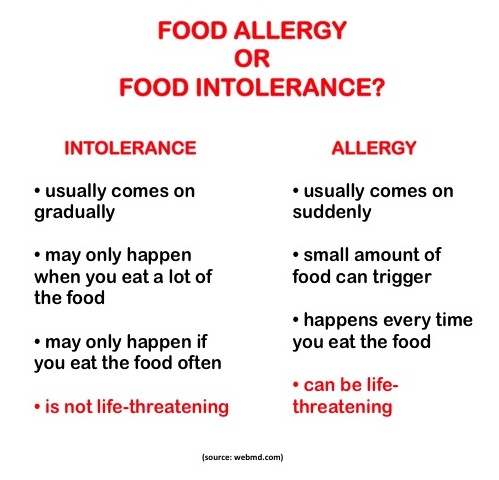
One of the major frustrations I have when I discuss food allergies with people is hearing someone claim they're allergic to something when, in reality, they (at most) suffer from a food intolerance. There's a big difference between food allergies and food intolerances, and the distinction is imperative. Where one can cause uncomfortable effects, the other can potentially kill.
There was a time when I was lactose intolerant—horrible gas pains, gastro distress, and other uncomfortable side effects followed when I ate my beloved ice cream. But that was not an allergy. (And take note that I still ate the stuff, because, delicious.) Claiming allergies when something is an intolerance does more harm than good, because really, developing a rash or a tummy ache is worlds different than suffering anaphylaxis. In this case, language and understanding is everything. They're simply not the same. In my opinion, only true allergens should be restricted in classrooms, and parents who request limitations based on intolerances only are doing those with severe allergies a disservice.
Food allergies are an immune system response to proteins in foods. In essence, you're not allergic to cheese, you're allergic to a specific dairy protein. Food intolerances have no link to an immune system response.
Both intolerances and allergies can cause gastrointestinal distress (gas, bloating, diarrhea, etc.), but an allergy will also affect other parts of your body, causing hives, rashes, breathing distress, and more serious complications, like a drop in blood pressure and throat swelling, which can indicate anaphylaxis and is life-threatening.
So, I made this handy little graphic explaining some of the differences between the two, for reference.